 Petzlover
Petzlover Both Bicolor and Pantherette are originated from United States. Both Bicolor and Pantherette are having almost same weight. Bicolor may live 3 years more than Pantherette. Both Bicolor and Pantherette has same litter size. Bicolor requires Moderate Maintenance. But Pantherette requires Low Maintenance
Both Bicolor and Pantherette are originated from United States. Both Bicolor and Pantherette are having almost same weight. Bicolor may live 3 years more than Pantherette. Both Bicolor and Pantherette has same litter size. Bicolor requires Moderate Maintenance. But Pantherette requires Low Maintenance
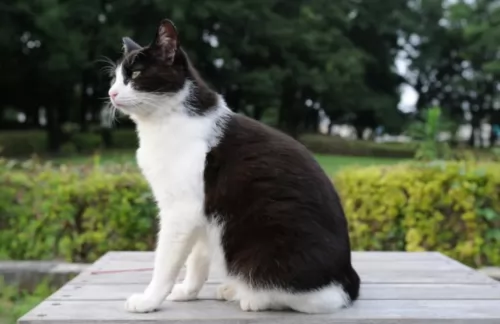 The first thing to know is that a Bicolor cat isn’t in fact a breed. Bicolor is just a term that describes a certain look that a cat has with its coat. It’s a cat with two colors such as red and white or black and white.
The first thing to know is that a Bicolor cat isn’t in fact a breed. Bicolor is just a term that describes a certain look that a cat has with its coat. It’s a cat with two colors such as red and white or black and white.
A popular name for bi-color cats is also Piebald or Tuxedo, and in fact many cat breeds can produce bicolor kittens, or black and white kittens such as Cornish Rex, Maine Coon, Manx, and others.
There are different coat color combinations when it comes to bicolor cats and the black and white markings may be more common but there are other color combinations too such as orange and white.
Nobody seems to know the origins of the Bicolor cats so we are going to assume they come from the USA.
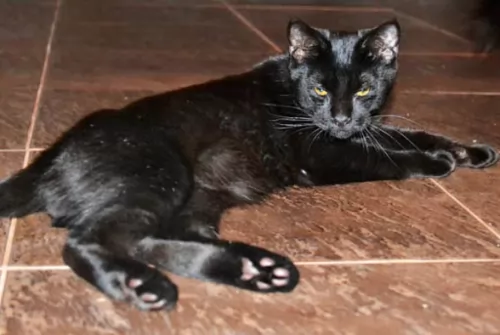 There isn’t too much history to the beautiful black Panetherette cat as it is still in development. It is in other words a hybrid cat and the name ‘Pantherette’ was give to the cat to describe its magnificent looks.
There isn’t too much history to the beautiful black Panetherette cat as it is still in development. It is in other words a hybrid cat and the name ‘Pantherette’ was give to the cat to describe its magnificent looks.
It looks just like the wild Black Panther or Black Leopard. There is, however, certainly no wild black panther or leopard that has been used
The Pantherette is a hybrid breed of cat that is still under development. It is intended to look similar to a Black Panther. It is a new breed based on a Melanistic (Black) Bengals as one of the foundation breeds.
The Pantherette is registered with the International Progressive Cat Breeders Alliance (IPCBA).
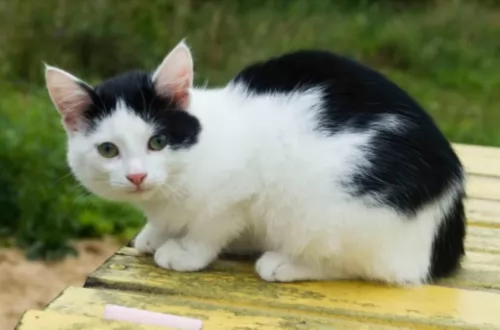 Regardless of the breed they belong to, information on these cats suggests that they can have many different looks. Look at the amazing Turkish Van cat for instance – each of these cats is recognizable for its long, luxurious fur. You’ll find a few touches of color on the cat's ears and tail, making in a Bicolor. They also have an interesting characteristic – being fond of water!
Regardless of the breed they belong to, information on these cats suggests that they can have many different looks. Look at the amazing Turkish Van cat for instance – each of these cats is recognizable for its long, luxurious fur. You’ll find a few touches of color on the cat's ears and tail, making in a Bicolor. They also have an interesting characteristic – being fond of water!
These Bicolor cats weigh in the region of 3 – 7kg, and can tend towards the smaller or larger size. Some of them can have short or long hair, larger or smaller ears and green or yellow eyes.
Coming from different cat breeds, the bicolor cat can have a mix of wonderful characteristics – they can be vocal or quiet or confident or shy.
They’re always wonderful though and can be curious, intelligent, playful, loving and loyal. They make great companions who just love the interaction they have with their human owners.
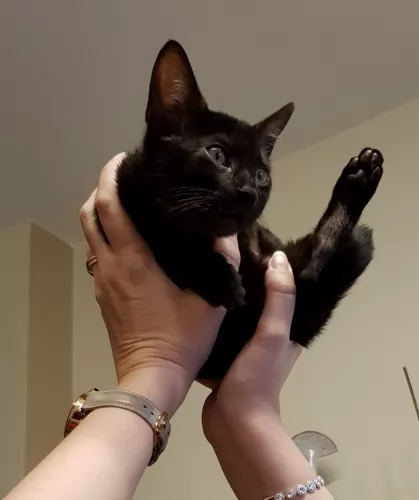 The Panehterette is a medium to large black cat still being developed, It weights in the area of 4 – 9kg. It is muscular and strong with a long body and a broadish head.
The Panehterette is a medium to large black cat still being developed, It weights in the area of 4 – 9kg. It is muscular and strong with a long body and a broadish head.
The legs at the back are slightly longer than the front. The legs are strong and muscular and medium in length with large, round paws. The tail of the Panethereet is medium to long in length, thick and slightly tapered.
The beautiful coat is short to medium in length and luxurious and silky. The ears are small to medium with rounded tips. The eyes are oval and set wide apart. They can be gold-colored or green.
The Pantherette breed is still in the beginning stages of its development, so there isn’t too much information on its temperament. Those who work with these cats say that they have the typical temperament of a domesticated cat and that they are alert, friendly, curious and that they enjoy being in the company of their human companions.
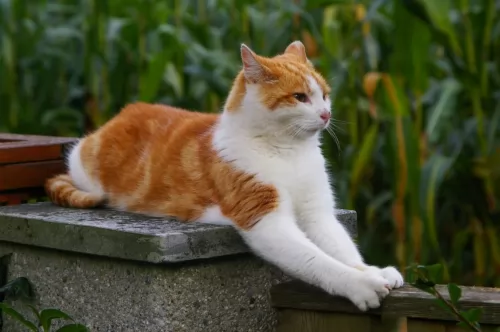 The Bicolor cat is such a steady, reliable cat-friend to have. When you start looking as these cats as your companion, you're going to get a smart, funny, adoring, playful family member who will be there for you whether you go to work each day or stay at home.
The Bicolor cat is such a steady, reliable cat-friend to have. When you start looking as these cats as your companion, you're going to get a smart, funny, adoring, playful family member who will be there for you whether you go to work each day or stay at home.
They’re such easygoing cats, with no airs and graces. They’re happy, relaxed, and uncomplicated cats and when you make a Bicolor your pet and friend, your life just becomes that much more meaningful.
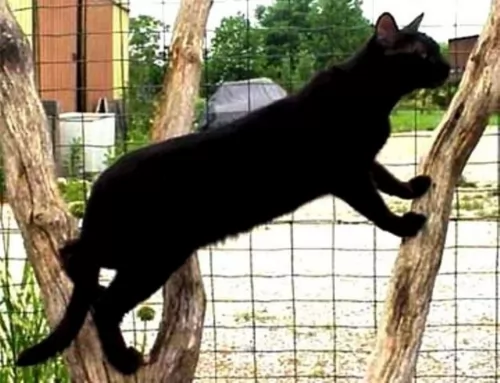 Domestic hybrid cats such as the Pantherette make great pets. However, you need to bear in mind that these cats have that wild side to them and they often try to escape.
Domestic hybrid cats such as the Pantherette make great pets. However, you need to bear in mind that these cats have that wild side to them and they often try to escape.
They are larger than the regular cat and its always advisable to have an outdoor shelter for them as well. The Pantherette is a truly beautiful cat but read up all you can on hybrid cats before you bring one into your home.
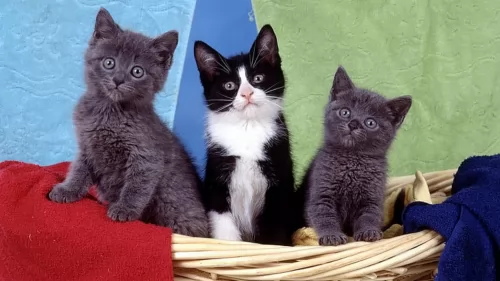 By providing your kitty cat with a loving home, you can ensure that he stays as healthy as possible. Unfortunately though, cats can get sick, regardless of how well you take care of them and then as a responsible pet owner, you will be able to take your pet to your local vet.
By providing your kitty cat with a loving home, you can ensure that he stays as healthy as possible. Unfortunately though, cats can get sick, regardless of how well you take care of them and then as a responsible pet owner, you will be able to take your pet to your local vet.
Some of the common cat problems you get can be kidney disease, ear infections, dental disease, parasites such as heartworm, cancer or something like feline immunodeficiency virus.
Whether your cat has a virus or an infection, remember that getting your cat to the vet can mean nipping the problem in the bud before it gets more serious.
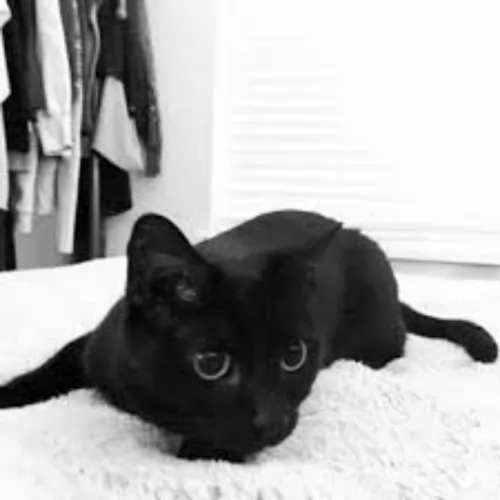 Hybrids suffer from genetic defects. These defects can often require surgery. A cat such as the Pantherette also requires a top-notch diet. You may even have to speak to your vet because these cats often battle to digest their food.
Hybrids suffer from genetic defects. These defects can often require surgery. A cat such as the Pantherette also requires a top-notch diet. You may even have to speak to your vet because these cats often battle to digest their food.
People who work with these hybrid cats say that a problem they often see is inflammatory bowel disease and diarrhea. Remember that cats like these are carnivores and their diets have to be made up essentially of meat if they are to remain healthy.
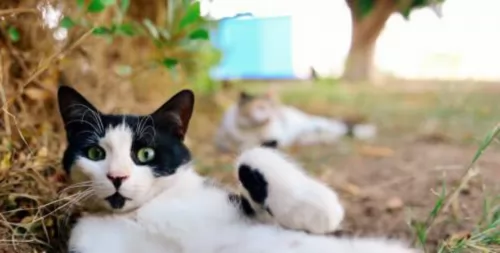 Caring for your Bicolor cat is much the same as with any other cat. Your Bicolor will shed, so brushing him will tickle him pink, especially if you do it lovingly and gently – it’s like a bonding session. The weekly brushing will get rid of loose hairs and dust and keep the coat healthy and shiny.
Caring for your Bicolor cat is much the same as with any other cat. Your Bicolor will shed, so brushing him will tickle him pink, especially if you do it lovingly and gently – it’s like a bonding session. The weekly brushing will get rid of loose hairs and dust and keep the coat healthy and shiny.
Spay or neuter your pet to avoid unwanted kittens. Stay up to date on veterinary visits and vaccinations.
Provide your cat with stimulating toys as well as all the equipment he needs to be comfortable – food and water bowls, litter box, grooming equipment, bedding, climbing- and scratching equipment.
All cat owners, whether their cats eat homemade food or wet- or dry food should read cat food labels and understand the nutrients content.
Certainly, as a carnivore, cats require certain vitamins, minerals, and proteins that only meat can provide.
Understand how to work out if the cat food is balanced or not and not packed with too many grains and carbohydrates.
How much your Bicolor eats will depend on his age and his activity levels. Be careful not to overfeed your cat as overfeeding is dangerous. When cats put on too much weight, it leads to problems such as diabetes, heart- and joint disease.
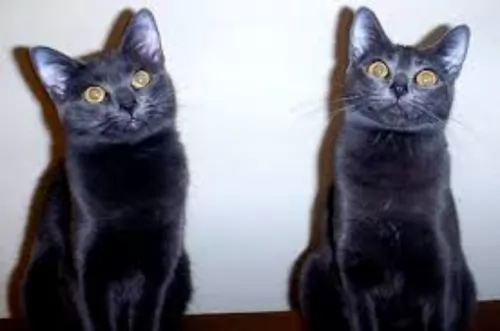 To ensure a quality lifestyle for your Panetherett, you want to care for him properly. A well cared for cat is one that becomes the best pet.
To ensure a quality lifestyle for your Panetherett, you want to care for him properly. A well cared for cat is one that becomes the best pet.
He will have to go to the vet at some stage for sickness and for his vaccines.
Make sure you invest in a cat carrier or sturdy leash as your cat won’t like going to the vet. These cats can struggle, wriggle and writhe and he will make every effort to get away.
Speak to your vet about ticks, fleas, and worms in your pet as these parasites can cause havoc with your cat’s health.
Domestic hybrids such as the Pantherette will need to have a litter box that is cleaned every day. These cats like a clean litter box. Make sure that you scoop the litter box at least one time each day. If you don't clean his litter box regularly, you’ll find that he tends to use other areas of your home as a toilet. Being a hybrid, it is quite likely that he will in any case as these cat's wild side see to this.
Ensure he gets the best cat food there is. A cat is a carnivore which means he is a meat eater. If you buy commercially manufactured pet food, make sure that the top ingredients on the label have meat and protein listed at the top.
Speak to your vet about the absolute importance of quality cat food for your feline pet, as poor quality food can make your cat sick and you’ll be spending more time at the vet.
Cats can easily become dehydrated, so ensure that he has a bowl of fresh, cool water available to him around the clock. You can have one or two water bowls available to him and the water bowls must be cleaned regularly.